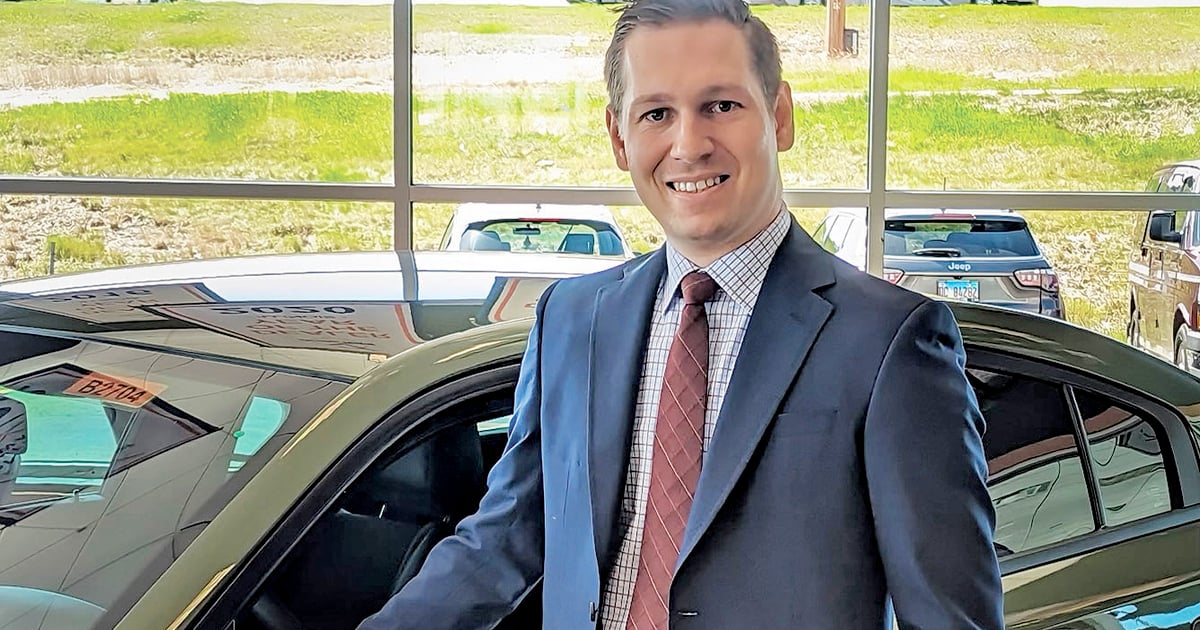
When Craig Courtney became finance director in 2017 for Taylor Chrysler-Dodge-Jeep-Ram in Bourbonnais, Ill., about 55 miles south of Chicago, his vacation days often were spent leading church mission trips to the Dominican Republic.
With just one full-time F&I manager and one assistant, no department guidelines and a dot matrix printer, Courtney wanted to ensure his department was prepared to handle the dealership’s F&I operations anytime he was in the Caribbean with no cell service. So Courtney wrote and printed an 18-page manual on everything — from how to book a sale and lease to detailed updates on every open deal. He told his two staffers: “It’s just so you don’t get lost.”
In late 2019, Courtney further regulated his store’s F&I operations introducing e-contracting to speed up contracts in transit and Darwin digital F&I menus to make the sales process more consumer-friendly.
With updated systems and a new F&I manager in place in mid-2021, Courtney’s next step in streamlining operations was to launch what he called a daily checkout system — an email chain between him and his staff detailing all aspects of customer and lender interactions that day. Courtney, 31, said this replaced a communication system that relied on post-it notes on deal jackets, individual emails and phone calls.
“A daily checkout is ‘This is what’s going on, this is your road map to what’s going on the next day or week,’ ” Courtney told Automotive News.
Taylor Chrysler Dodge, owned by David Taylor, is part of Taylor Automotive Group, with three stores in Illinois, one in Missouri and one in Indiana. The stores sell Chrysler, Dodge, Jeep, Ram and Ford vehicles. The Bourbonnais CDJR store last year sold 610 new vehicles and 1,245 used vehicles.
When Courtney became finance director, a “good” F&I profit per vehicle was $1,100, he said. After Courtney’s six years of F&I leadership at the store, the average F&I profit per vehicle is just more than $2,400, with a department goal of reaching $2,748.
Details in Courtney’s daily checkout include information on customers planning to come to the dealership the next day to bring a title and spare key, notes on signed deals and ideas on which lenders could best fund a deal.
“I was sick and tired of if someone wasn’t here and a customer came in, we shouldn’t be spending time trying to figure what the heck’s going on with that customer, how much money do they owe us, if there was a down payment that needed to be paid or a form needed to be signed,” Courtney said. He wanted to ensure “everybody was on the same page.”
“It’s more convenient for a customer to walk in and we’ll say ‘I was expecting you. I was already briefed on that,’ ” Courtney said. “If there’s someone that needs to come in and re-sign, it’s all put in there so everybody knows what’s going on.”
The daily checkout also eliminates having to bother an employee who’s out of the office, empowering everyone to make decisions — even when a boss isn’t around.
“Too often in the dealership world and business in general, people in higher management sometimes when they’re not present, people either in lower management or other staff have a hard time feeling comfortable making decisions,” Courtney said.
Finance Manager Noah Posthumus said the daily checkouts are especially effective for the store’s small F&I department, which processes as many as 190 vehicle sales a month.
“It allows us to stay on top of everything and not let things fall in the cracks,” Posthumus said. “That checkout has made things run smoother and keep the lines of communication open.”
Jim Crosswell, general manager and partner at Taylor CDJR and Taylor Ford of Manteno in Illinois, said since Courtney started e-contracting and daily checkouts, the CDJR store’s average funding time for contracts in transit is three days. Before, it was seven to 10 days, Courtney said.
“We’re experiencing record numbers of per-car profits for F&I and record percentages of penetration in service contract sales and [guaranteed asset] protection,” Crosswell said.
Taylor CDJR’s deals in transit previously were slowed down over weekends, especially deals done on Friday that wouldn’t reach the bank until Tuesday with the store’s office staff out over the weekend. But the technology upgrades changed that.
“This allowed the turnaround time in funding to be cut substantially,” Courtney said. “Some of these deals will be funded the same day. It keeps the cash flow of the store really moving.”